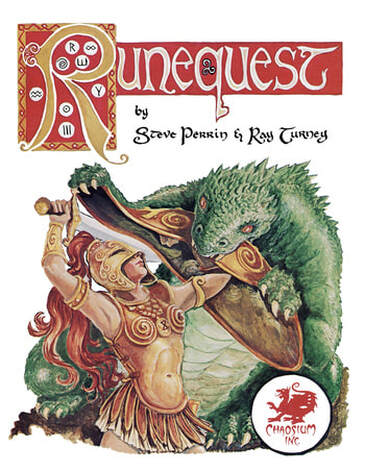 Since the numerous HASBRO/WOTC debacles of late, a great deal of you are starting to move away from D&D 5e. Some are choosing heavily ruled games such as Pathfinder and others have begun a long journey into the older play style which goes all the way back to when Dave Arneson began running his Blackmoor campaign in 1971. To all of you D&D 5e players - Welcome to the wider community of RPG gamers! For me, it is wonderful to see a new exploration of older games. The simpler game systems that are not heavily mechanized to the point that referees have little space to individualize have a lot to offer. I also really want to avoid any kind of edition war sentiment. Whatever system was available to you when you started gaming is going to be your 'comfort food' game system. You know it inside out and it is easier for you to use than anything else. Keep playing what you know, but also consider other RPG games. I always urge gamers to go back to the older games for inspiration by finding a copy of Original Dungeons & Dragons, Tunnels and Trolls, Empire of the Petal Throne, Rune Quest, TFT: In The Labyrinth, or even Traveller. All of these games offer an entirely different game experience from what may be familiar to you and may add to your already existent campaigns. Now is the chance to become a much more well rounded RPG gamer and also, exploring other systems doesn’t have to be costly. Old games can be found on Ebay, or as PDFs. In some cases they are even being reprinted today. Some are even free. A copy of Basic D&D is on the web here: https://www.americanroads.us/DandD/DnD_Basic_Rules_Holmes.pdf If you are a gamer without a group, I will even leave these links to the rules and a wonderful solo adventure for Tunnels and Trolls - yes, even solo play can be fun. The original rules: https://www.drivethrurpg.com/product/108306/Tunnels--Trolls-Rules-4th-Edition A very good solo adventure to play through: https://www.drivethrurpg.com/product/54802/Sword-for-Hire-TT-solo 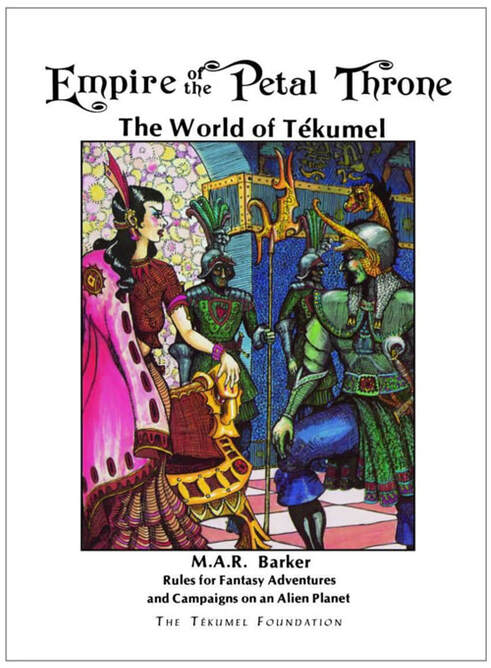 There is the blanket term of OSR for anything that is not the current D&D edition. I would add, 5e is now part of the OSR realm of D&D editions. And, of course, there are many non D&D fantasy games, as well as an endless supply of non fantasy settings that one can explore. For someone who began with newer editions, beginning around 3rd edition, the constantly evolving low ruled style of the early games may be a bit confusing. The premise that Arneson described when he demonstrated his Blackmoor game to Gary Gygax for the first time of “There are no Rules” may seem entirely alien. What did Arneson mean by that comment? How can we play a game that has no rules? An Adventure Game is not a computer program. Not all situations can be handled in a realistic manner by simply rolling some dice and tabulating the result with a cross referenced attribute. Rob Kuntz is known for stating, “You cannot rule reality.” What he means is that in an ever changing real fantasy world experience there are too many variables to track and you can’t model a reality with simple die roles according to simple one size fits all rules. What you need is a Referee, or Judge, who is fair and impartial that can make decisions about what is happening in any situation and can apply these decisions to the game play. The earliest editions of RPGs had rules which covered player attributes, movement, how to conduct battles, how magic spells work, and some very basic rules for listening at doors, opening doors, and finding concealed objects. Everything else was up to the Game Master and players to work out amongst themselves. The minimal rules led to a greater level of flexibility for the referees. It allowed them more freedom to create things ahead of time that the players could then discover. It also led to having unique encounters creating a truly magical feeling for the players. Perhaps the greatest difference within traditional play is how weak players are to start out with. New characters are like young adults, or even teens, who are setting out to make their way in life. Thus your ability is limited and the situations and creatures encountered are often deadly. Players will often choose to avoid some encounters. 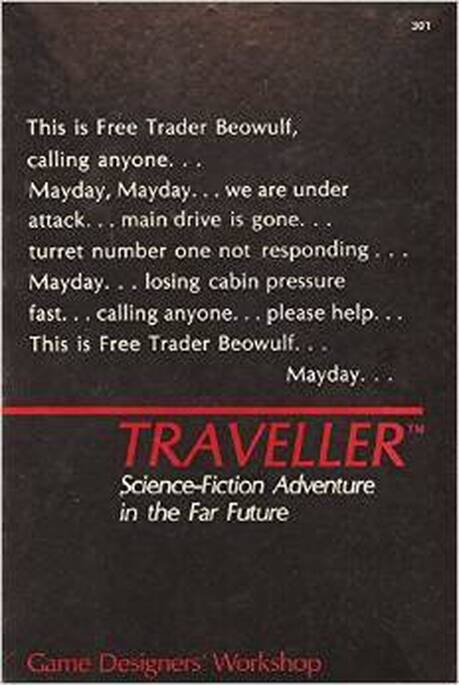 Wandering into a dungeon or wilderness away from civilized society is a terrifying experience. Everything one encounters is mysterious and enchanting in its own way. Yet, as mentioned before, it can also be deadly for your characters. The older D&D basic set I linked is only 44 pages long, yet it contains everything you will need to play up to 3 levels of a game. It has a sample dungeon, but you can easily create your own. My advice is to read the sample and them make your own because it is easier to run something you made up yourself and you will also need a bigger 3 level dungeon anyway. There is a reason the old games were so popular. They ware fast playing, and also, a lot of it was very Do It Yourself. You don’t have to spend a lot of money to have fun exploring a magical RPG world with the older games. Of course, another way to learn how to expand how you play your RPG is by watching Secrets of Blackmoor: https://www.amazon.com/gp/video/detail/B087QN51WF/ref=atv_dp_share_cu_r Until next time, Griff
0 Comments
Finally back from Gary Con. I managed to get sick on the return drive. It made the trip into a hallucinatory journey for me. But I am now fully recovered. Today is the house game group day. YAY, I can look forward to playing tonight. Thankfully, Bob Whelton will be running something so I can take a break. I’m not burned out, yet, I put a lot into doing the annual Gary Con games I run for people. I do not run a massive schedule of games. An aerial war game session over Blackmoor, a movie screening, a large naval battle, and the annual descent into a Blackmoor dungeon with Tonisborg. Each session requires its own particular kind of energetic investment to have the game, or event, be enjoyable. This year only one person came to the Battle in The Skies over Blackmoor. Thus I offered to show up and talk about the game rules and also gave away a book and a T-shirt. As we chatted an original Blackmoor player I had never met wandered up to the table. To be precise, Paul Stormberg dragged him over and introduced us. The failed game session turned into a long discussion about original Blackmoor. This is why I go to GaryCon, I always meet interesting gamers. This time it was Phil Grant. The Fletcher Pratt Naval War Game was a huge success. Despite someone not showing up, another someone off the wait list decided to stop in and see if there was an open slot, thus I had 12 players. PRO TIP: If you go to a convention and the schedule is full for a game you want to play - make sure to show up anyway! People who spotted the game being played showed interest as well. A lot of experienced players were asking me if there was another session scheduled because they really wanted to play. Next year I will add another session to the schedule. The movie screening was lightly attended. Yet, the audience was really appreciative. One person came up and described being in tears by the end of the film. And yes, everyone got a gift for being there. Giving things away seems to be a theme for us. In previous years I have given away boxes worth of old games from the 80’s and 90’s. This year we gave away our own game books, T-shirts, dice bags, and Emergence of Blackmoor maps. Oh, and imported candy from Croatia. I have a box of old valuable games and may bring some old TSR modules to give away next time. I hate to see good games sit in my house unplayed. I’d rather know they are getting used by a game group and being fully enjoyed. Chris commented that our events are like parties where everyone gets a prize just for being there. After all, it’s GaryCon and it should be special, as the event honors Gary Gygax without whom TSR and all the games we still play and love would not exist. Gary Con takes a lot of effort and energy. Just now, I was sitting outside sipping my morning coffee and it came to me that although I am fully immersed into my campaign creation to the point that I doubt I could write everything I think of down, I need some time to gather my referee energy before I can run a game again. Sure, I can run a game. Running a game is easy. I’ve been doing it for over 45 years now. What I want out of running the world of Blackmoor is a feeling I get when I do it well. I do not want to go through the motions. I want game sessions where everyone involved feels they have done something unique and that on some level the communal energy while playing transcends the ordinary. This is no tiny pondering about gaming, it is one of those deep think times where you realize you had a new insight. I often hear gamers say such things as, “Oh, when we play our game we are story tellers!” It is a mantra new gamers tell themselves and others all the time, usually while trying to convince you they are doing something special. Story Story Story Story Story Story Story Story Story Story Story Story Story Story Story Story Story Story Story Story Story Story Story Story Story Story Story Story Story Story Story Story Story Story Story Story Story Story Story Story Story Story Story Story Story Story Story Story Story Story Story Story Story Story Story Story Well, sure, but I feel good referees do more than convey stories. I know the best games I have ever played are more about state. What are we doing to our mental state. Are we transporting ourselves into a dream? Story is the launching point. A good story puts you in a different state. We enter the dreaming. And the RPG dreaming is not something you can simply conjure up without the combined play between the players and referee. You need everyone involved mentally present and also a bit of luck! I wish I could claim to be the greatest referee out there. I work hard at creating something special for every session I run. Sometimes it will fly, other times I end up with an “oh my god the humanity” Hindenburg moment. Some of you will likely know what I mean by this. I will say I do try to make every session feel unique for myself. The last thing I want is to feel like I am phoning it in. If I ever feel I have run out of referee magic, I will likely hang up my dice bag and stop playing. No game session should feel ordinary! This is the struggle for referees who chase the dreaming. You have to try out strange ideas to keep your sessions feeling fresh for you and your players. New approaches for how you present your world to your players. You also need players who engage with what you are presenting. Passive players who expect the referee to dole out gaming joy will never experience the dreaming. Another aspect to the dreaming is the game environment. There is a reason most gamers play within controlled room environments. Distracting spaces can ruin the dreaming. Much as I love conventions, the big rooms full of tables full of gamers full of roaring voices, ruins the dreaming. I could never run a game in a space like that because I can’t do what I do when I run my game. One game that I suspect is very successful at Gary Con is the Order of the Owl. It is a game that gets played in a little corner of the convention; tucked away in a stairwell of all places. Although there is a lot of traffic going through the area, where the game takes place is off to the side and very quiet and intimate. What is most interesting about it - it is a walk up game. Anyone can play. There are always extra chairs and you can just jump in and play. The referee runs the game nearly non stop for days on end. It is just there for anyone to take part in. For my one annual game session GaryCon lets me use a conference room where we can close the door and enter the dreaming.
Somehow, this year, I ran one of the best games I have ever run. The players were engaged and I felt like I as referee had entered the dreaming. We could switch between game talk about mechanical things and dreaming the experience of being in the dungeon together without effort. I always feel like I run good games at GaryCon, but this group of players had some kind of mojo going from the very beginning. They were there to be together as a team. I did not have to herd them into good play technique. They were the ones who decided very quickly on a party leader who did most of the talking with me, and would discuss situations amongst themselves before taking actions as a party. The entire game ran smoothly as the players helped me to focus on my duties while they focused on theirs. I was impressed to have the players create a marching order with the halfling moving forward to scout and explore. It was understood that aside from the alteration of having the halfling do scout work, if anything was encountered, the marching order was also the hallway combat order. They picked up on my DM cues. At one point a player was interested in examining something and I said something like, “It seems ordinary…” The player took my cue and we moved on without role playing the details of a non event that would have wasted game time. When something needed adjudication on the fly I asked for a grey roll and then told them the results. No one questioned what I was doing, since they can’t know what the roll is, or how it works. They trusted my judgement as referee. At one point in the game I ran a combat that was very large. A party of 14 characters, one mule, and a pet rat v.s. 21 Kobolds. Because I run original rules, it is entirely a make believe experience without miniatures. Due to the collaboration between players and referee it was over in about 7 minutes! As a game being run in the open format of Original D&D, the focus is exploration. No time was wasted on narcissistic drama about “My character is a special…” We only had 4 hours of game time. The players were there to forge deep into an old dungeon to grip it and rip it. Exploring was job number one. I am still amazed at how well the game ran. I suspect everyone was an experienced player as all the in game suggestions were good ideas, with everyone being polite in voting for or against party actions. I am still scratching my head over the game session. A room of 10 strangers and me, their referee, managed to coalesce into a well oiled gaming machine that played a near perfect game. I’m not talking about perfect in terms of tangible goals either. What I mean is that everything ran smoothly even when the party was being T.P.K.ed by wraiths in the final encounter of the night. It was the overall experience that was perfect. I can’t know if everyone felt as I did. My hunch is that everyone had an exceptional game session. Most of the players stayed until the very end with only one leaving a mere 15 minutes before the end of the session. Original D&D play is a collaborative game form. Everyone in the session has to do their part and contribute to making each session be extra-ordinary. What can you do to make your own experience flourish? It isn’t about being the best or in any way competitive. Is it simply about being fully engaged in the moment? What can we do to raise the bar in our own game sessions? HERE IS A LINK TO PART OF THE LIVE STREAM OF THE GAME SESSION: https://www.facebook.com/blackmoorsecrets/videos/601847208200528 Thanks for reading and pondering with me - Griff Please share my article, tell your friends about Secrets of Blackmoor, and perhaps be kind to each other. |
DVD'S, Books, T-shirts, games and more available on our store.
AuthorSecrets of Blackmoor is a Feature-length documentary about the birth of the “Mother of all Games;” Dungeons & Dragons. Archives
January 2024
Categories |
Privacy Policy
All Contents Copyright © 2023 The Fellowship of the Thing, Ltd. - All Rights Reserved
All Contents Copyright © 2023 The Fellowship of the Thing, Ltd. - All Rights Reserved

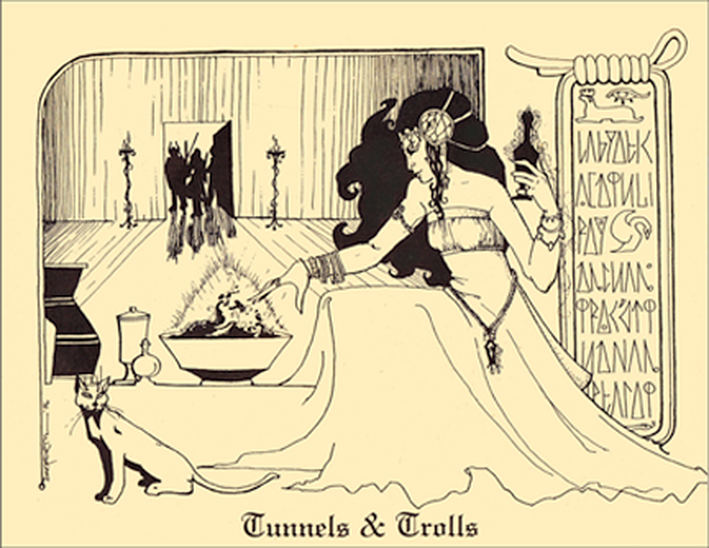
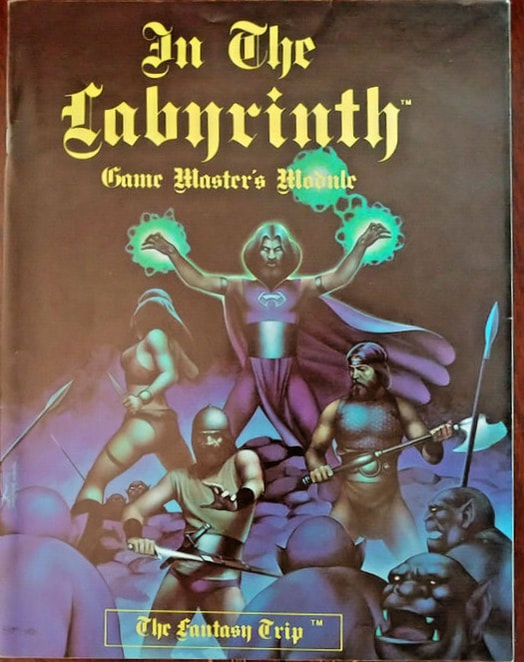
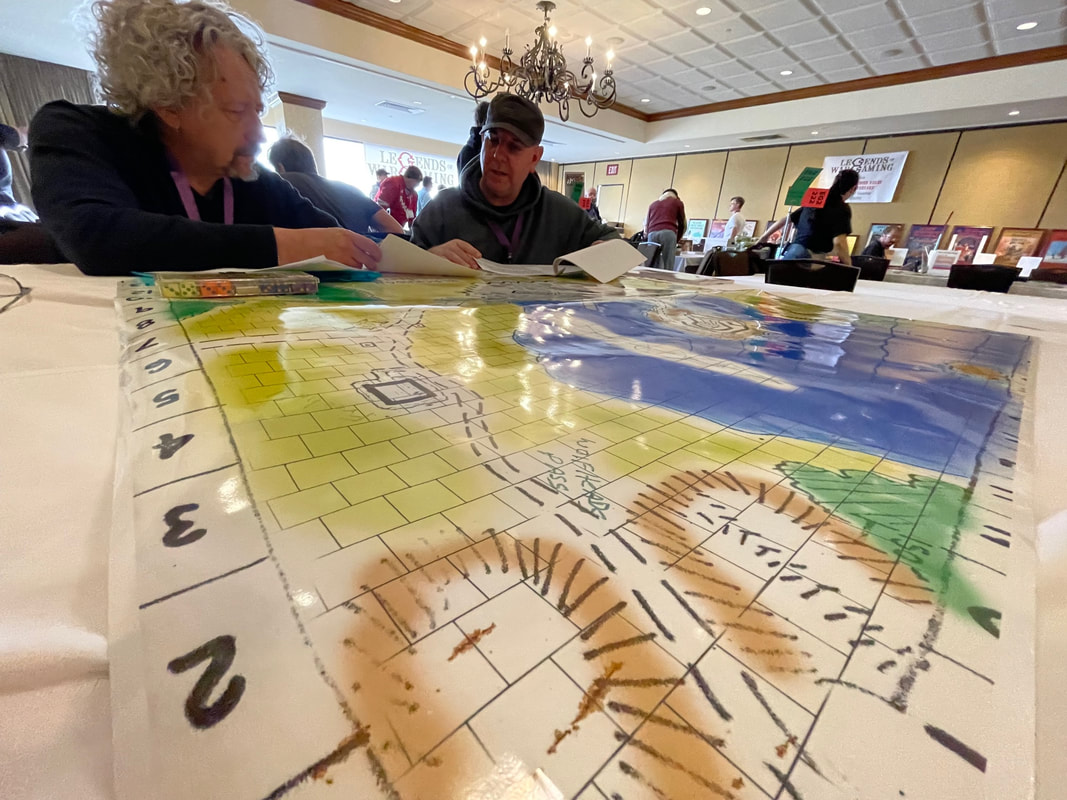
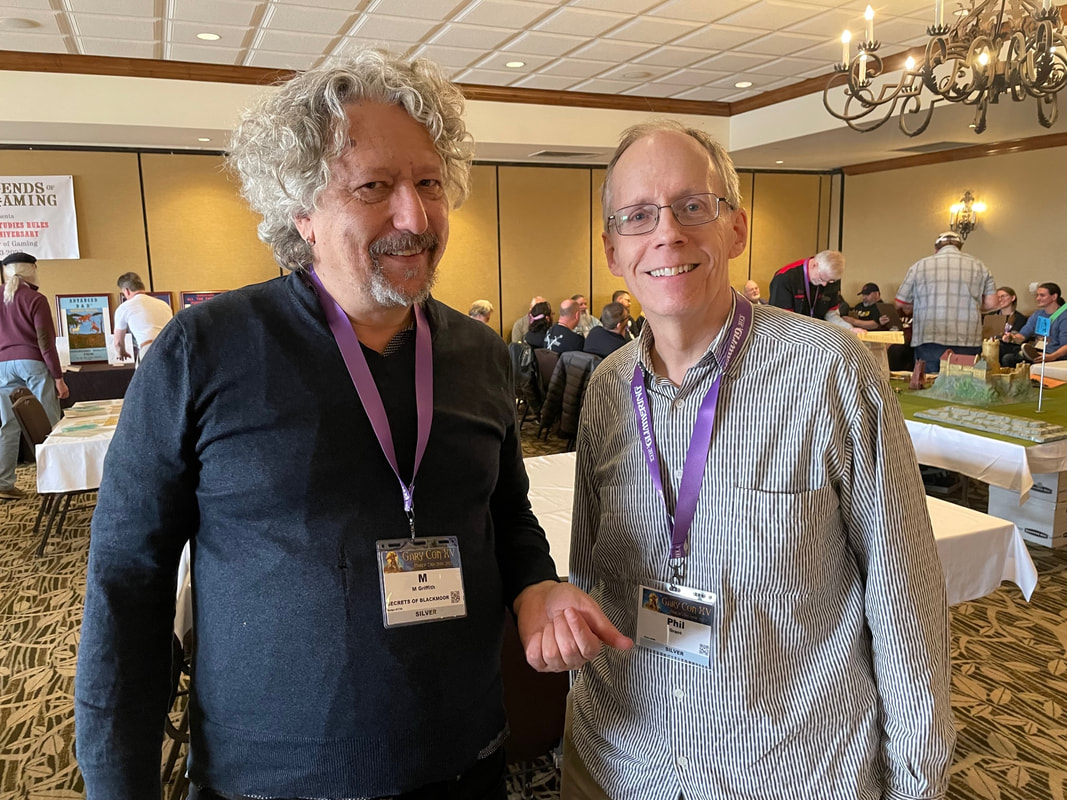
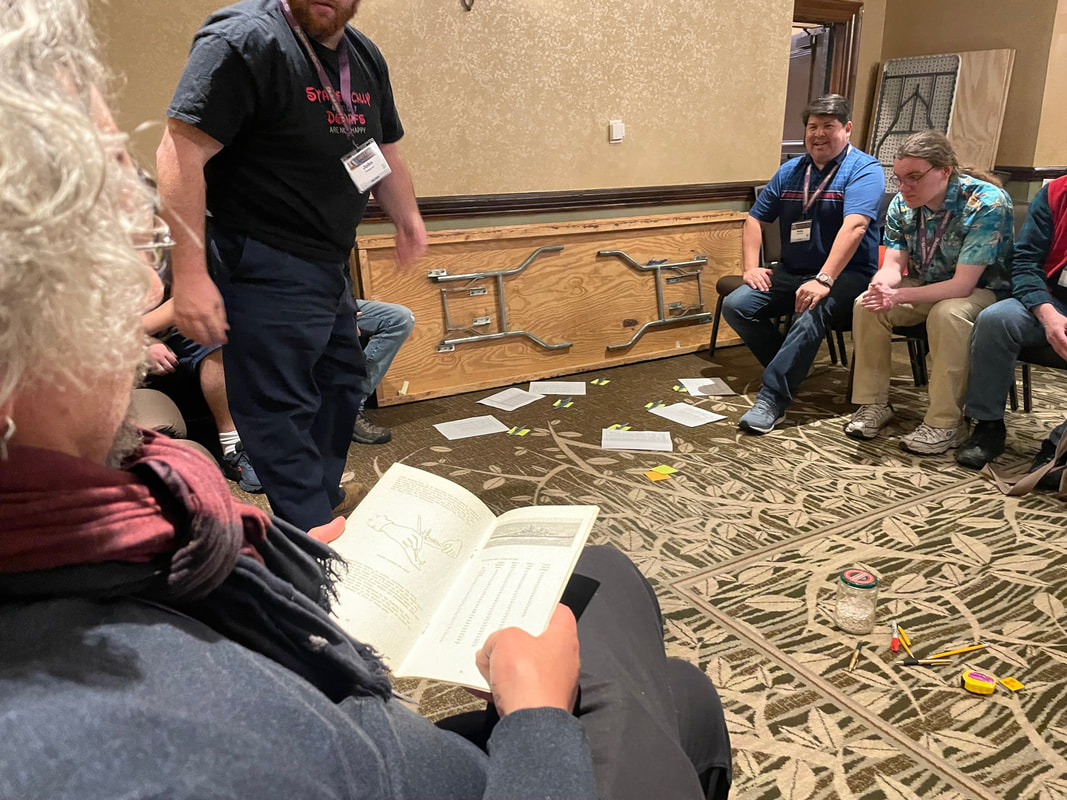
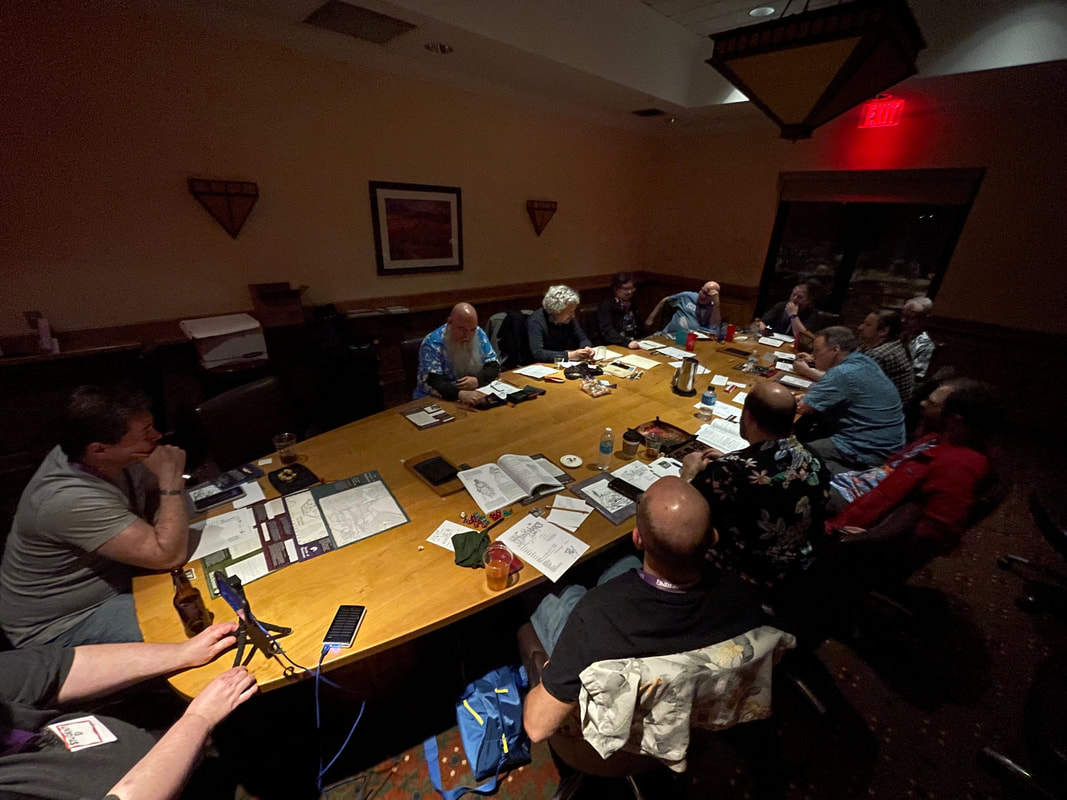
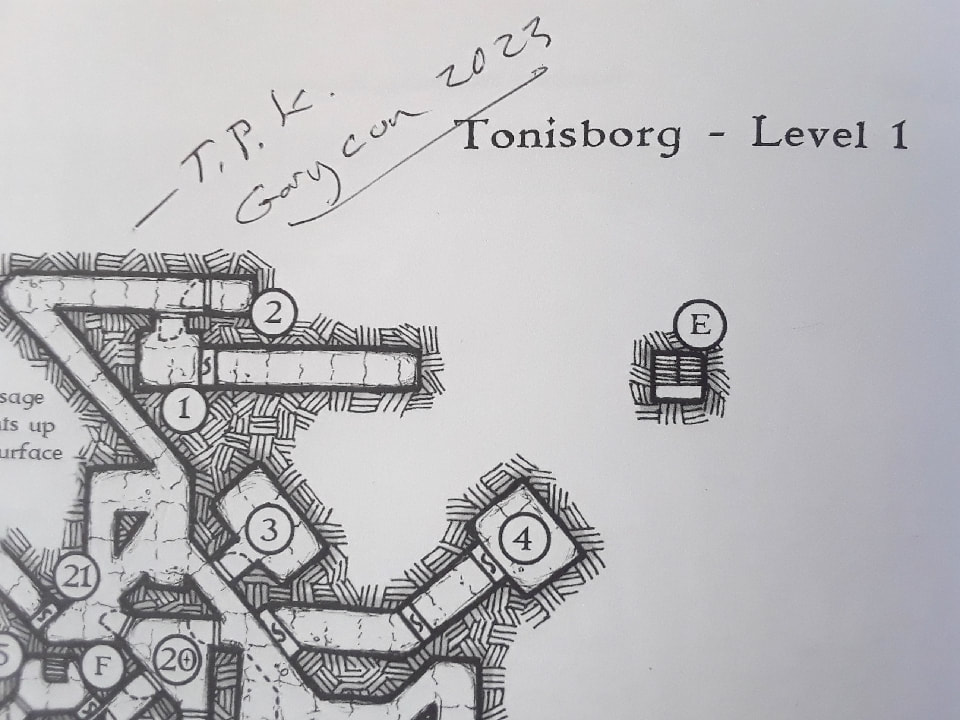
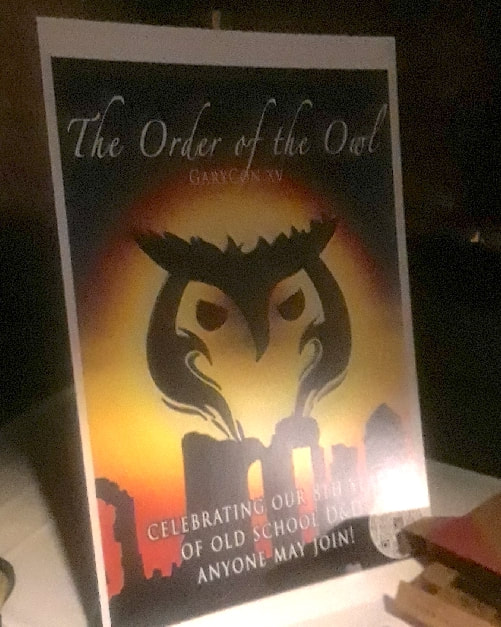
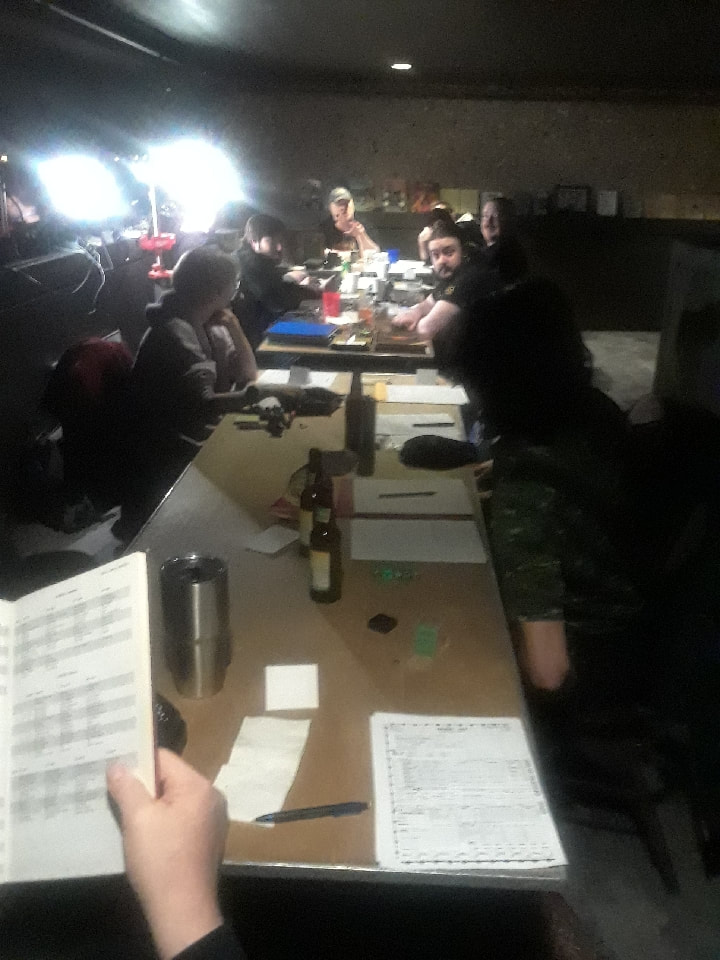
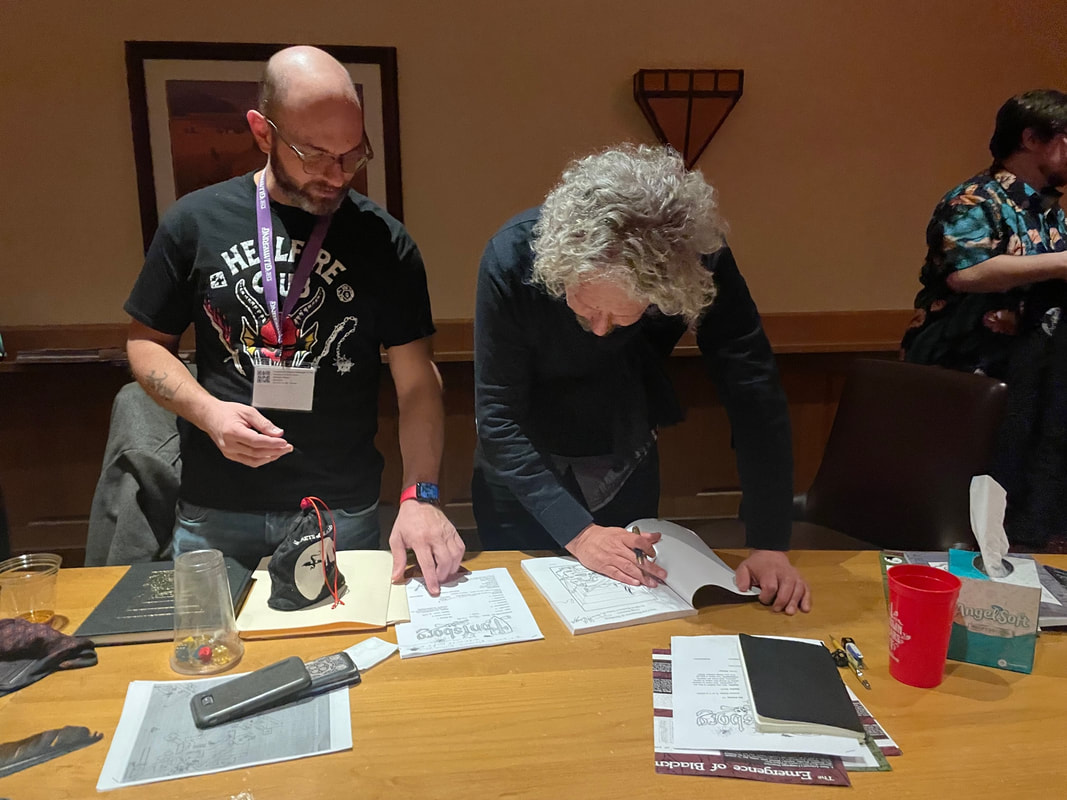
 RSS Feed
RSS Feed